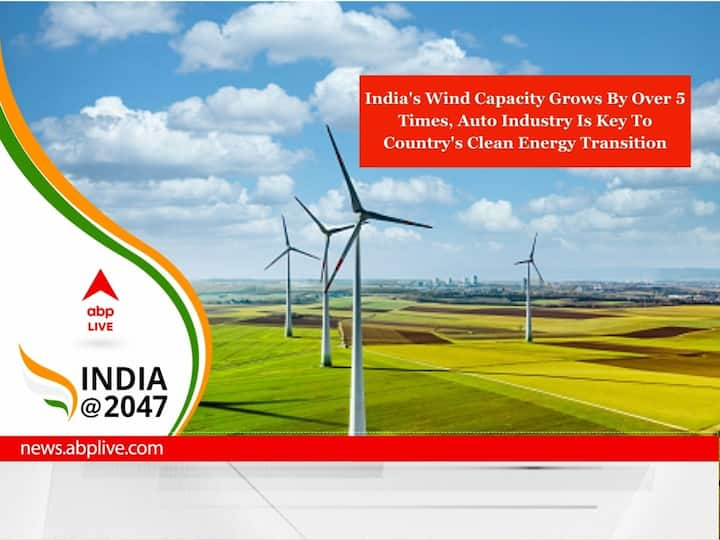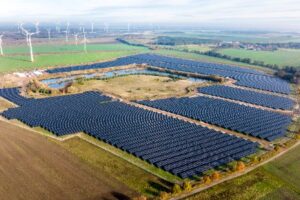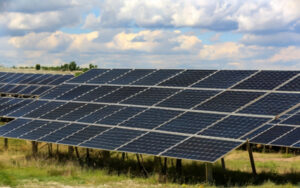India Wind Capacity Grows By Over 5 Times Auto Industry Clean Energy Transition

India has grown its wind energy capacity by over five times, and nearly doubled its solar capacity between 2016 and 2022, a testament to the fact that the country’s growth in renewable capacity has outpaced the growth of coal power. India has set ambitious goals for a clean energy transition, and the automotive industry will play a crucial role in this journey, according to a report by Zero Carbon Analytics, an international research group that provides insights and analyses about climate change and energy transition.
From 2015 to 2022, the sales of electric motorbikes and scooters increased by over 3,000 per cent.
MUST READ | Pancreatic Cancer Day: Why Robotic Surgery Is Crucial To Remove Pancreatic Tumour, And How It Is Done
India’s journey to clean energy transition
India plans to ensure a clean energy transition by reducing carbon dioxide emissions. The country has pledged to reduce its cumulative emissions by one billion tonnes by 2030, increase renewables capacity to 500 gigawatts by 2030, reduce emissions intensity of the gross domestic product by 45 per cent by 2030, and meet 50 per cent of energy requirements from renewables, according to the Union Ministry of New and Renewable Energy. Emissions intensity refers to the volume of emissions per unit of GDP. Therefore, it is crucial to reduce emissions intensity to ensure that less pollution is created per unit of GDP.
The renewables with which India aims to fulfil 50 per cent of its energy requirements are solar and wind energies.
MUST READ | Can Diabetes Be Cured In The Future? Know Science Advances That May Make It Possible
India has invested significantly in energy transition to achieve its green goals. In 2021, India ranked seventh among countries that made the largest investments in energy transition.
That year, India invested about USD 11 billion in renewable energy, and USD 1.6 billion in electrified transport. In 2022, India increased investments in electrified transport by two times to about USD 3.5 billion.
MUST READ | NISAR: NASA-ISRO Earth Observing Satellite To Be Launched In Early 2024, To Survey Earth Every 12 Days. All About It
Such investments are important because they ensure economic growth, and create employment opportunities in the energy and transport sectors. By investing in renewables and electrified transport, India can curb carbon emissions and enhance the country’s air quality, especially in densely populated cities.
Every year from 2000 to 2022, India has increased its wind capacity by 22 per cent, and solar capacity by 18 per cent.
MUST READ | Diabetes Mellitus And Diabetes Insipidus Can Occur In The Same Person At The Same Time. Know About These Rare Cases
After the Paris Agreement, India, from 2016 to 2022, increased its wind capacity by 533.7 per cent, and its solar capacity by 46.2 per cent, according to the report.
India’s contribution of wind and solar energies to electricity was nine per cent in 2022. Overall, renewable energy sources were responsible for 20.5 per cent of electricity generation. India’s coal capacity decreased to four gigawatts in 2021 from 19 gigawatts in 2015.
MUST READ | How Increased Screen Time And Bad Postures Harm Neck And Spine, And What Must Be Done To Prevent Tech Neck
Favourable government policies and technology advancements have ensured an exponential growth in renewable energy.
Not only is the automotive industry key to India’s clean energy transition, but is also an important driver of economic growth, the Indian government has said. It is projected that India’s electric vehicle market will grow by 49 per cent from 2022 to 2030.
Annually, about 10 million units of electric vehicles are sold. This has made India one of the fastest-growing EV markets in the world. By 2030, the industry is expected to create 50 million direct and indirect jobs in the country.
MUST READ | What Was Thalidomide Tragedy? Over 6 Decades On, Australia Sorry For Babies Born With Birth Defects
Asia’s investment in renewable energy
Other Asian countries which have made significant progress in energy transition are China and Vietnam. Since 2004, Asia’s investment in renewable energy has grown exponentially. The average annual growth rate has been 23 per cent.
In 2022, Asia’s investment in renewable energy was USD 345 billion.
MUST READ | Stroke Is Fourth Leading Cause Of Death In India, Global Cases Projected To Increase By 50 Per Cent By 2050
Asia accounted for 52.5 per cent of global wind and solar energy capacity in 2022.
Between 2000 and 2022, China had the fastest-growing deployment of wind and solar energies in the world.
MUST READ | The Science Of Health: How Climate Change And Air Pollution Impact Heart Health, And What Must Be Done
China is the leading buyer and manufacturer of solar and wind technologies and electric vehicles.
Between 2018 and 2022, Vietnam increased its solar capacity by 18,380 per cent.
Vietnam has the second-largest sales of electric motorbikes and scooters in the world.
MUST READ | Science For Everyone: Why Delhi Air Pollution Is So Severe, And What Needs To Be Done




